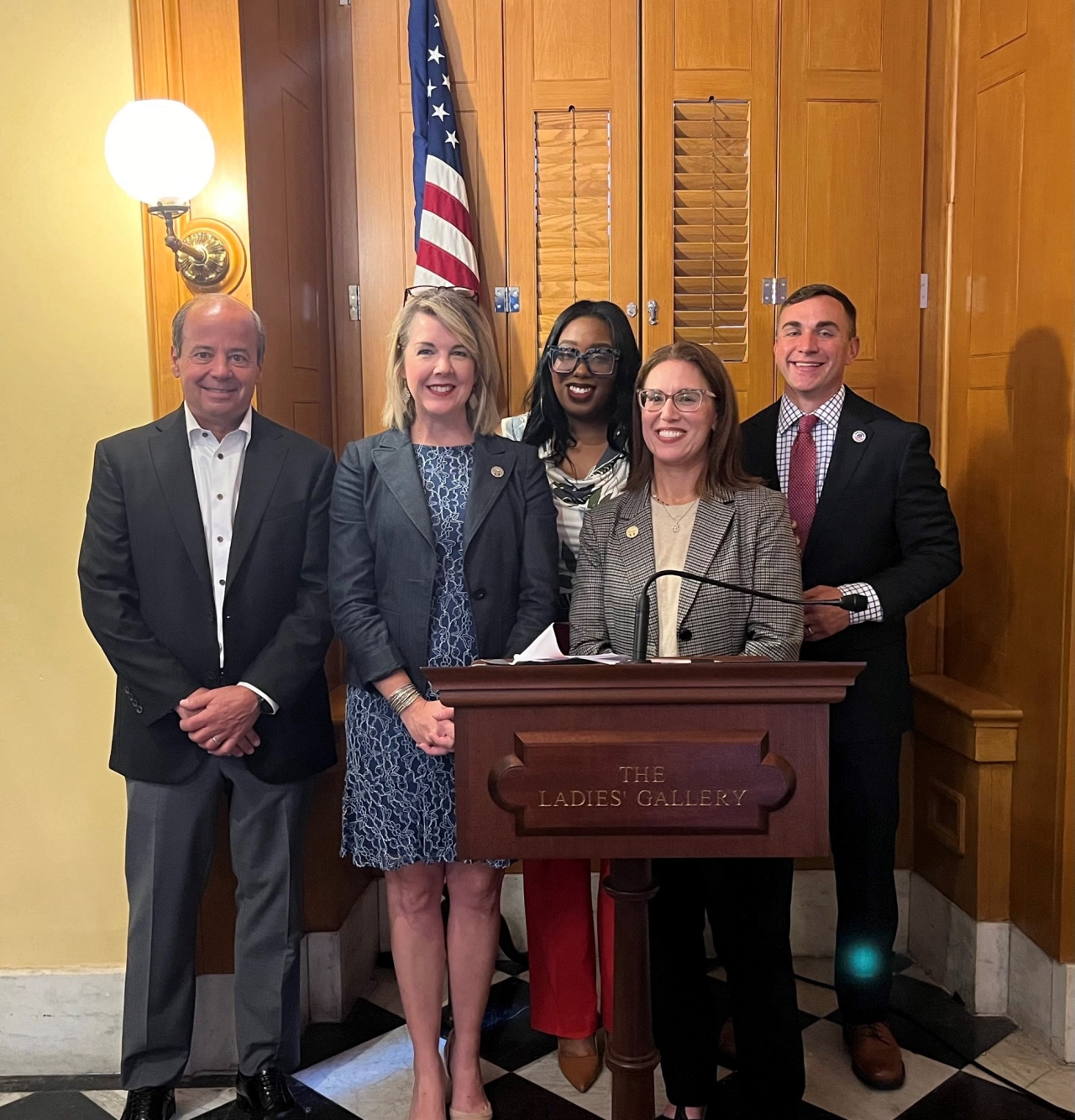Franklin County, State Officials Make Clear How State Can Address Skyrocketing Property Taxes

COLUMBUS —House Minority Leader Allison Russo (D-Upper Arlington), Franklin County Auditor Michael Stinziano, State Rep. Latyna M. Humphrey (D-Columbus), State Rep. Beryl Brown Piccoloantonio (D-Gahanna), State Sen. Hearcel F. Craig (D-Columbus) and Grove City Councilman Mark Sigrist hosted a press conference Wednesday addressing the need for the state legislature to take action and reduce skyrocketing property taxes in Ohio.
“House Democrats and local leaders have been fighting to lower property taxes and create a fairer system that doesn’t constantly rely on property owners to pick up the tab. We can lower our property taxes, reduce costs, and still support essential services by ensuring the state pays its fair share and returns more of our tax dollars to our community. It's time for the state legislature to take action; Ohioans need help now,” said Leader Russo.
“If property taxes were part of the state budget not local budgets, the General Assembly would be falling over themselves to find a cost saving fix,” said Franklin County Auditor Stinziano.
“Until my colleagues at the Statehouse act, Republican-led, trickle-down tax policies will continue to shift taxes onto local communities and homeowners, forcing senior citizens and middle-class homeowners to take on the state’s responsibility for providing safe communities, good schools and an economic infrastructure,” said Rep. Humphrey. “We are working together for bipartisan solutions that jumpstart our economy and provide direct relief now to homeowners, renters, and seniors. By lowering property taxes, we can make housing more affordable for everyone and help more seniors afford to stay in their own homes.”
“For far too long, the state has chosen not to pay its fair share into Ohio’s public schools. When the state chooses to pay less, it forces our communities to pay more – or it forces our teachers to do more with less. That’s why Ohio communities have needed to vote on school levies more often than any other state over the last 20 years,” said Rep. Brown Piccolantonio. “We are working across the aisle to address solutions that matter, making sure that the elderly can live independently in the homes they love, a young couple can afford to own a new home, and Ohio’s strong communities remain intact.”
The elected officials outlined their commitment to provide assistance and support to those impacted by the new valuations and will advocate for legislative action in Columbus to aid seniors and homeowners with rising costs.
“Housing is foundational and fundamental,” said Sen. Craig. “The issue of rising property taxes transcends party lines; it is a human issue. Our constituents are struggling, and I urge all my colleagues in the Senate and the House to use the limited time we have after November to work together to positively impact the lives of the Ohioans we serve.”
“Local communities have been forced to do more with less over the last decade. The state was once a strong partner, supporting local infrastructure and essential services that make our communities safe and attract businesses that grow our economy and create jobs. Now, by shifting more and more of the responsibility to local homeowners, the state is doing less while seniors, middle-class, and working families are doing more,” said Grove City Councilman Mark Sigrist. “Nobody, especially senior citizens, should have to choose between buying medicine and paying their bills. It’s time the statehouse acts on these bipartisan solutions that would bring relief to millions.”
House Democrats have introduced multiple pieces of legislation, mostly bipartisan, to provide assistance, reduce consumer costs, and gives support to those impacted by the new valuations and higher property taxes:
- HB 60 (Troy) - Expands the homestead exemption to cover an additional 75,000 seniors and raises its value to $40,000, providing nearly $250M in targeted relief.
- HB 263 (Isaacsohn/Hall) - Freezes more than $400M in property taxes for more than 700,000 seniors making $50K or less.
- HB 274 (Dell’Aquila/Matthews) - For individuals who qualify and have owned their homes for more than 20 years, this bill increases the exemption from $26,200 to $50,000.
- HB 645 (Isaacsohn/Hall) - Legislation that provides a $1K property tax rebate to help more Ohioans afford their tax bills, targeting $1B in tax relief to over 1.3M middle-class homeowners and renters after their tax payments exceed 5% of their income.
Today’s press conference can be viewed here.







